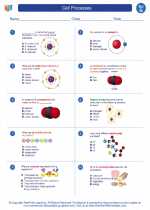Storage
Storage refers to the process of storing, retaining, and preserving various forms of energy, materials, or information for future use. In the context of science, storage can encompass a wide range of concepts including energy storage, data storage, and material storage.
Energy Storage
Energy storage involves the capture and retention of energy for later use. This can include storing energy in the form of batteries, capacitors, or other devices. Some common forms of energy storage include:
- Battery storage
- Pumped hydro storage
- Thermal energy storage
- Flywheel energy storage
Data Storage
Data storage refers to the retention of digital information for future access. This includes storing data on physical media such as hard drives, solid-state drives, and optical discs, as well as cloud-based storage solutions. Common methods of data storage include:
- Hard disk drives (HDD)
- Solid-state drives (SSD)
- Cloud storage
- Network Attached Storage (NAS)
Material Storage
Material storage involves the preservation and retention of physical substances for later use. This can include storing raw materials, agricultural products, or manufactured goods. Methods of material storage can vary widely depending on the specific materials being stored, and may include:
- Warehousing
- Cold storage
- Inventory management systems
- Preservation techniques (e.g., canning, drying, freezing)
Study Guide for Storage
When studying the concept of storage, it is important to understand the different forms of storage and their applications. Here are some key points to consider when learning about storage:
- Identify the different types of energy storage and their respective advantages and limitations.
- Examine the various methods of data storage, including the differences between physical and cloud-based storage solutions.
- Explore the importance of material storage in different industries, such as agriculture, manufacturing, and logistics.
- Consider the environmental and sustainability implications of different storage methods, particularly in the context of energy and material storage.
- Discuss emerging technologies and advancements in storage systems, such as next-generation batteries, advanced data storage techniques, and innovative material storage solutions.
By understanding the principles of storage and its applications across different domains, you can gain a comprehensive appreciation for the role of storage in modern society and scientific advancements.
.◂Science Worksheets and Study Guides Seventh Grade. Cell Processes

 Activity Lesson
Activity Lesson
 Worksheet/Answer key
Worksheet/Answer key
 Worksheet/Answer key
Worksheet/Answer key
 Worksheet/Answer key
Worksheet/Answer key
 Worksheet/Answer key
Worksheet/Answer key
 Vocabulary/Answer key
Vocabulary/Answer key
 Vocabulary/Answer key
Vocabulary/Answer key
 Vocabulary/Answer key
Vocabulary/Answer key
 Vocabulary/Answer key
Vocabulary/Answer key
 Vocabulary/Answer key
Vocabulary/Answer key
 Vocabulary/Answer key
Vocabulary/Answer key
 Vocabulary/Answer key
Vocabulary/Answer key
